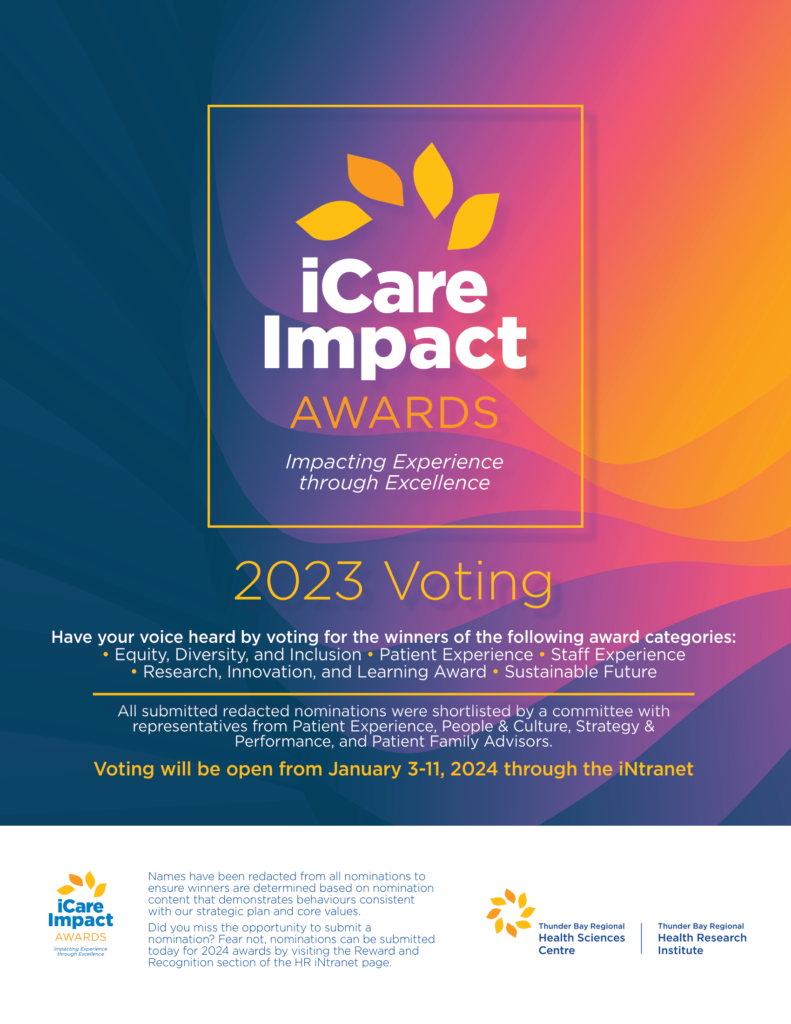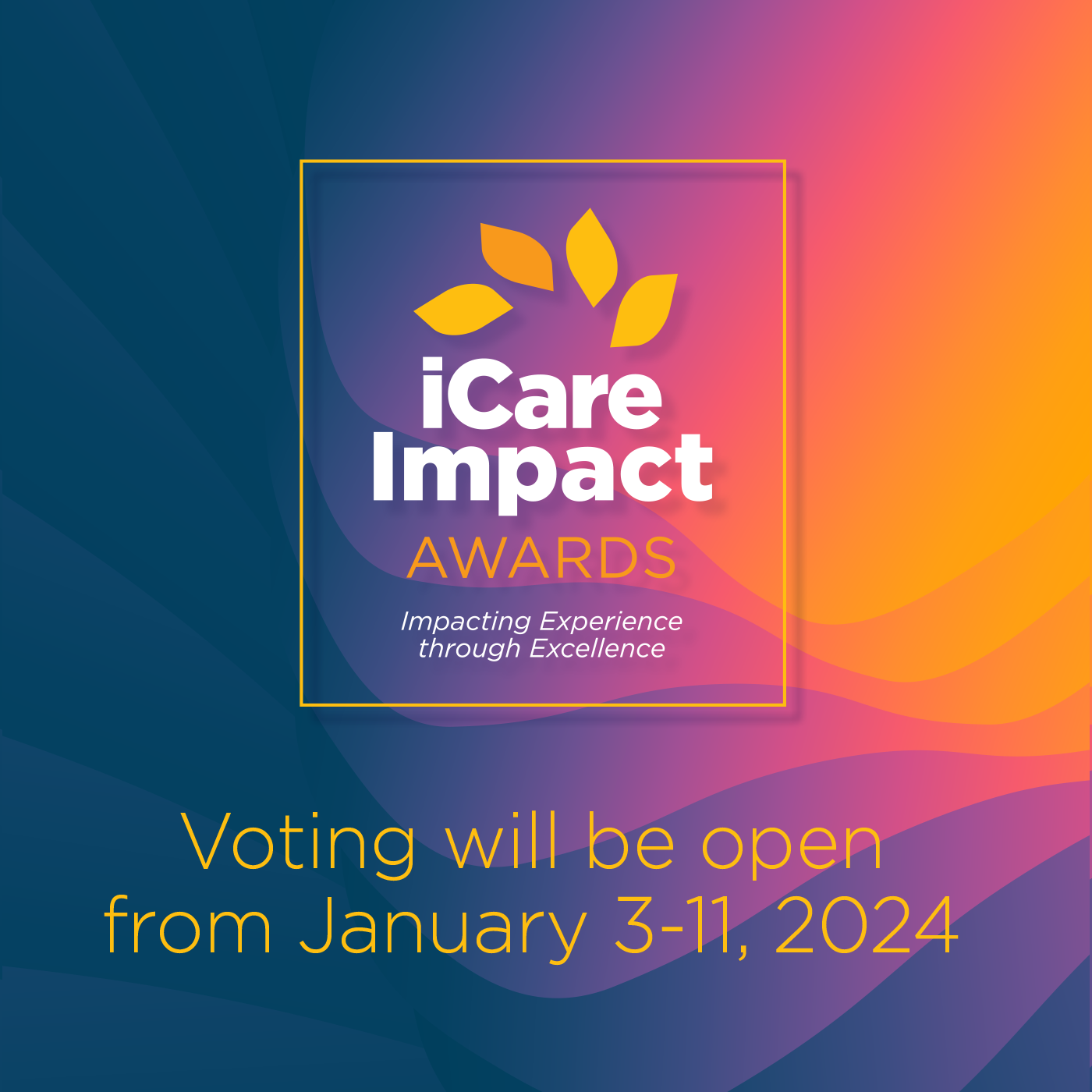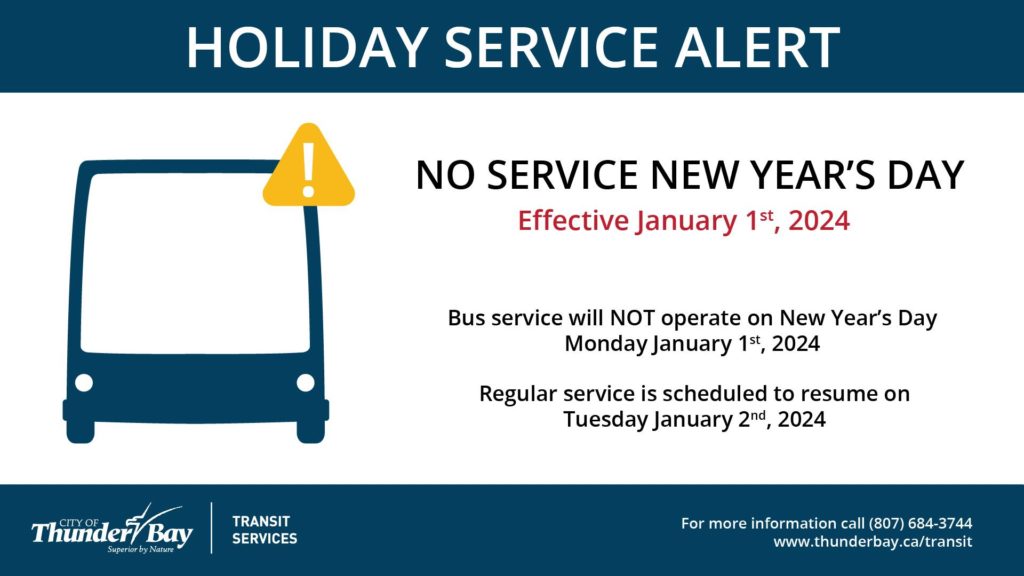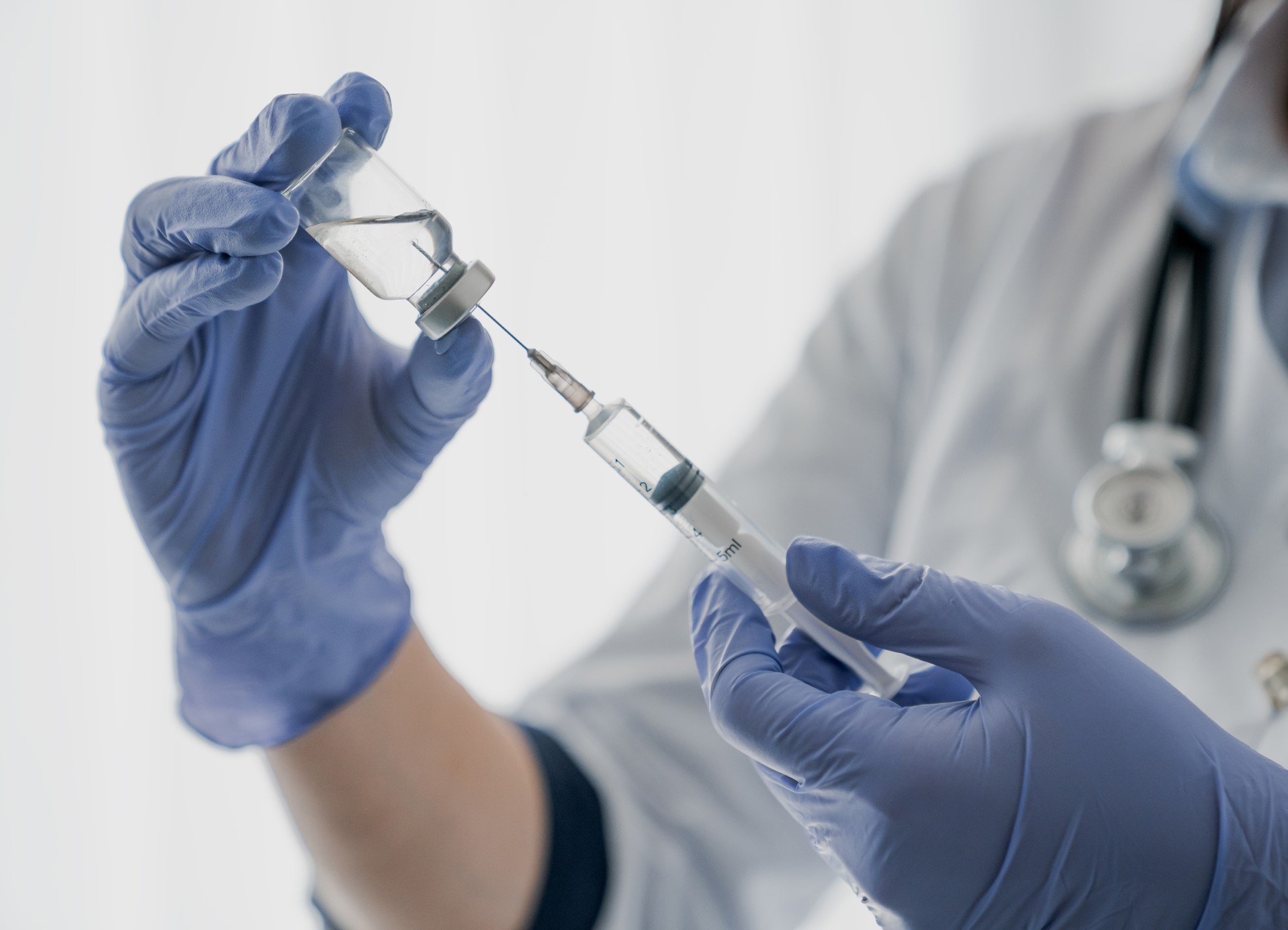It is the last day to vote for the 2023 iCare Impact Awards. Have your voice heard by voting for the winner of the 2023 iCare Impact Awards here!


It is the last day to vote for the 2023 iCare Impact Awards. Have your voice heard by voting for the winner of the 2023 iCare Impact Awards here!


Please be advised that bus services will not operate on Monday, January 1, 2024.
Regular service is scheduled to resume on Tuesday, January 2, 2024.


Due to the upcoming statutory holiday, the weekly Smudge Ceremony will not take place on Monday, January 1.


Are you looking to upgrade your next Webex meeting experience? Consider using a Thunder Bay Regional Health Sciences Centre branded background.
To download a branded background, visit the Branding, Templates, and Logos section of the Communications and Engagement intranet page. Right click on the image (either the white or reverse blue option) and save to your files.
For information on how to change the background in Webex, see below.


Congratulations to the latest round of prize draw winners for the Employee and Professional Staff Engagement Survey! They have each won a $20 gift card, compliments of Edo Japan.
A final participation prize for six months of free parking will be drawn and announced in the first week of January. If you have not completed your survey, there is still a few days to do so. The survey will close at end of day on December 24, 2023.



Today is the last day of the COVID-19 vaccine clinic. COVID-19 vaccine (Moderna XBB.1.5) available through Occupational Health and Safety (OHS)
Hours of operation are 8:00 a.m. to 4:00 p.m.
Appointments can be booked by calling the OHS department at 807-684-6212. There are many spaces available. Drop in will also be accepted.
To be eligible for the vaccine, you must be a health care worker 18 yrs of age and a minimum of 6 months (168 days) since your last COVID-19 vaccine dose or confirmed COVID-19 infection (whichever is later).
A confirmed COVID-19 infection is one that has been confirmed by molecular (i.e. PCR) or a rapid antigen test, or where you experienced symptoms after contact with a household member who had a positive test.
Staff must bring a piece of government issued Identification in order to obtain the vaccine. Your health card or driver’s license is acceptable.

Staff are invited to visit with Knowledge Keeper, Illa Kruschel, as she shares the important cultural connection between Indigenous Peoples and the Winter Solstice.
To register, please email Annette Klement at tbrhsc.culturalsafetyeducator@tbh.net.


Test your trivia knowledge by participating in the daily holiday-themed trivia challenge. Questions will be posted daily on the intranet https://holiday-cheer-trivia.tbrhsc.net/ and on the job posting board.
Participation prize draw winners will be announced on Monday, December 18.
Show your holiday spirit and dress in your most festive attire (keeping in line with restrictions based on specific professions, of course).
Submit a photo of you and/or your team in your festive attire on or before December 17 to Haley.Shipston@tbh.net. Multiple photos are allowed for each day that you wear festive attire.
Participation prize draw winners will be announced on Monday, December 18.
Get festive and decorate your work area for the holidays! Be creative and resourceful (upcycle existing decorations or make your own).
Submit a photo of your decorated space on or before December 17 to Haley.Shipston@tbh.net to be entered into the prize draw.
Note: to keep this holiday season safe, decorations must comply with CPO-O1 Workspace Policy (https://informed.tbrhsc.net/getattachment/Policies/General-Manual/Corporate-Planning-and-Operations/Workspace-Policy-(CP0-01)/CPO-01-Workspace-Policy-Jan-04-2022.pdf).
Participation prize draw winners will be announced on Monday, December 18.

We invite all staff, professional staff, learners and volunteers to celebrate the holiday season by participating in one (or all!) of the Holiday Cheer Week events. We want to say a big “thank you” for all your incredible work throughout the year. Take some time out to connect with colleagues and celebrate the season of joy with us.
December 11 from 10:00 a.m. to 5:00 p.m.
Vendors from the community will be in Auditoriums A and B selling their wares for Holiday season.
December 12 at 12:30 p.m. to 1:00 p.m. and 1:00 p.m. to 1:30 p.m. (two sessions)
Join Speaker Katelyn Filice for her talk about tips and tricks to help set boundaries in ICP Main Meeting Room 2178.
December 14 at 12:00 p.m. to 1:00 p.m. and December 21 at 12:00 p.m. to 1:00 p.m. (two sessions)
Join Knowledge Keeper Illa Kruschel for her talk in the Multi-Faith Room. Register for this event by emailing TBRHSC.CulturalSafetyEducator@tbh.net.
All month
Enjoy piano, flute, and brass musical performances to ring in the holiday season throughout December.
All week
Get festive and decorate your work area! Submit your photos to Haley Shipston at Haley.Shipston@tbh.net to be entered into a draw. Please note decorations have to comply with CPO-01 Workspace Policy.
All week
Dress in your best holiday attire and submit your photos to Haley Shipston at Haley.Shipston@tbh.net to be entered into a draw.
All week
Participate in our daily holiday-themed trivia and be entered into a prize draw.
All week
This time of year, the Renal Services Food Bank and Patient Clothing Cupboard are looking for donations. Challenge another department and see who can gather the most donations for these patient-centred causes.
